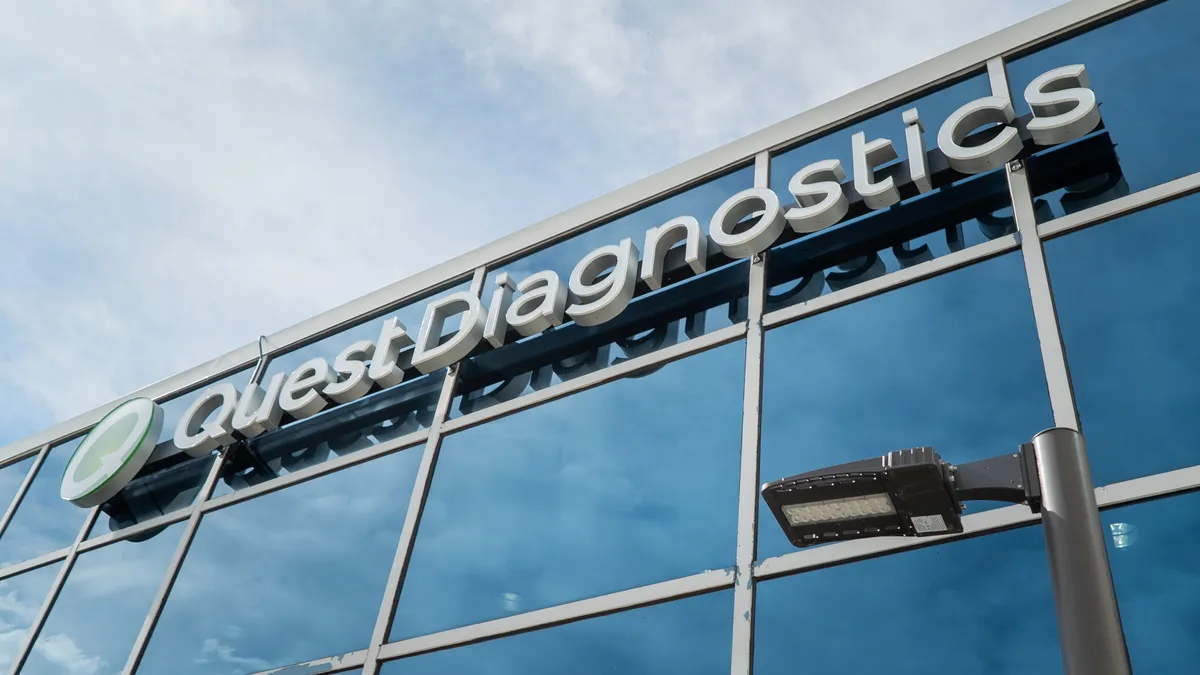Dive Brief:
-
Quest Diagnostics has partnered with computational pathology company Paige to develop AI-enabled products and services.
-
The collaboration pairs Paige's AI capabilities and digitized pathology slide data with Quest's scale and pathology expertise. By pooling the resources, the partners aim to create software products that Quest can use in its pathology operations.
-
Quest and Paige will initially focus on developing regulatory-approved products that support the diagnosis of solid tumors such as cancers of the prostate, breast, colorectal region and lung.
Dive Insight:
Paige has established itself as an emerging force in AI-enabled pathology products since Thomas Fuchs and colleagues from Memorial Sloan Kettering Cancer Center set up the company in 2017. The startup secured a CE mark and FDA breakthrough status in 2019, before going on to land a deal with Philips to create AI applications for pathology laboratories later that year. Paige reeled in $100 million to fund the next stage of its evolution in January.
The Quest deal gives Paige another way to get its AI-enabled insights to healthcare professionals. Paige CEO Leo Grady framed the deal primarily in the context of the scale provided by Quest and its specialty pathology businesses AmeriPath and Dermpath.
"Given Quest's vast footprint in the diagnostic space this collaboration will enable us to ensure broad adoption of the clinical products and biomarkers we're building," Grady said in a statement.
Paige is scaling up its commercial team to increase adoption of its software by hospitals and labs, committing to double its headcount this year, but even after adding the 70 new employees it will still be dwarfed by Quest. AmeriPath employs 450 board-certified pathologists and Ph.D.-level scientists who provide medical diagnostic services as part of the broader, 50,000-person Quest organization.
The agreement positions Quest to use software developed with Paige in its pathology operations, as well as to engage in joint marketing and research. Neither party has shared detailed financial terms, saying only that the deal "involves shared revenue for achieving certain product and commercial milestones." The partners will market the products to pathologists, oncologists and other providers.
Kristie Dolan, general manager, oncology franchise at Quest, said the goal is to create products that "make precision medicine clinically accessible, actionable and economical." In theory, AI can make the diagnosis of cancer faster and cheaper by shifting some of the burden of image analysis onto machines, although the technology is still getting established outside of research settings.
Quest and Paige need to develop and win approval for software before their alliance can contribute to the real-world use of AI in cancer diagnostics. In the near term, the partners plan to strike deals with biopharma companies to support biomarker discovery, drug R&D and companion diagnostics, giving them a way to generate revenues while working to get products to market.










